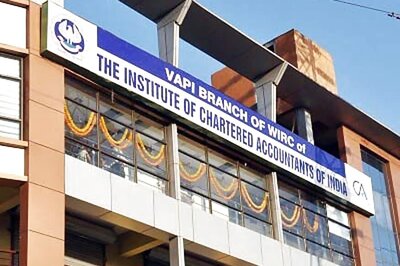
views
Fixed Deposit (FD) and Recurring Deposit (RD) are both popular investment options offered by banks and financial institutions. They have distinct characteristics and benefits, making them suitable for different financial goals and preferences.
Both FDs and RDs have their own advantages and disadvantages, and the choice between them depends on your planning, risk tolerance, and investment preferences. It’s important to carefully consider these factors and compare the terms offered by different banks before making a decision.
Also Read: Investing SOS: Missed Mutual Fund SIP? Must Read What Happens After That
Fixed Deposit
Lump Sum Investment: In a fixed deposit, you invest a lump sum amount of money for a specific period, typically ranging from a few months to several years.
Interest Rate: The interest rate for a fixed deposit is fixed at the time of investment and remains constant throughout the tenure of the deposit.
Interest Payment: Interest is usually paid out at the end of the tenure or on a periodic basis (quarterly, semi-annually, or annually), as chosen by the investor.
Flexibility: FDs offer less flexibility in terms of periodic investment. You need to invest the entire amount at the beginning.
Premature Withdrawal: While it’s possible to withdraw an FD before its maturity, there might be penalties or a reduction in interest rate for early withdrawals.
FDs are suitable for those who have a lump sum amount of money and want a fixed and predictable return on their investment.
Recurring Deposit
Periodic Investment: In a recurring deposit, you invest a fixed amount of money at regular intervals (monthly) for a fixed tenure.
Interest Rate: Similar to FDs, the interest rate for a recurring deposit is fixed at the time of opening the account and remains constant throughout the tenure.
Interest Payment: The interest is calculated on a monthly basis, but it is typically paid out at the end of the tenure along with the maturity amount.
Flexibility: RDs offer more flexibility as you can invest a smaller amount at regular intervals, making it suitable for individuals with limited monthly savings.
Premature Withdrawal: Withdrawing from an RD before its maturity might result in reduced interest earnings.
RDs are suitable for people who want to save small amounts regularly and earn a fixed return on their savings.
Which is better?
The best option for you will depend on your individual circumstances and financial goals. If you have a lump sum of money to invest and want to earn a guaranteed return, then a fixed deposit is a good option. However, if you want to save small amounts regularly and build up your savings over time, then a recurring deposit is a better option.
Always consider factors like interest rates, tenure, penalties, and your personal financial situation before making a decision.
Ultimately, the best way to decide which option is right for you is to speak to a financial advisor. They can help you understand your individual circumstances and goals and recommend the best investment option for you.



















Comments
0 comment